Opinion
Open letter to US
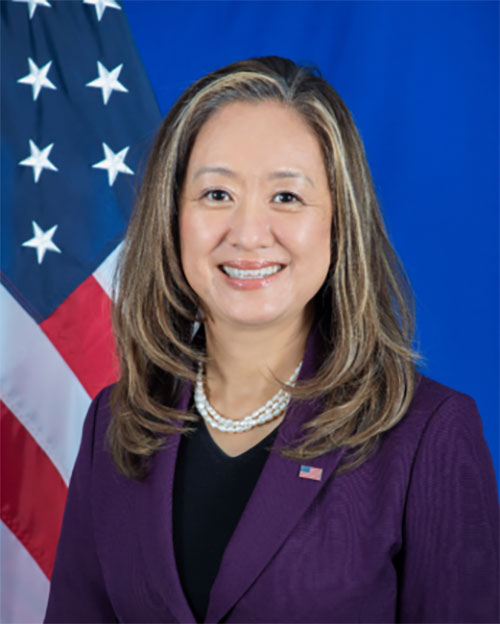
I know quite well that Americans do not like too much formality, and let me address you by your first name, Julie.
So, dear Julie,
Let me introduce myself first. I am a Fulbright Scholar (1998-2000), and I am extremely proud that I am one. After my Fulbright period, I was awarded a series of other fellowships by the University of Wisconsin to finish my PhD. Before joining the University of Peradeniya, I taught for four years at Cornell University. All those 10 years in the US and the education I received there enriched my vision of life and the world. After my education in the US, I was able to develop as a relatively influential public intellectual and a literary writer. While always appreciating the opportunities given to me by the US, I have always opposed imperialisms of all kinds.
As a scholar in Comparative Literature, I have been a cosmopolitan person all through my adult life, teaching literary works from nearly all the countries of Europe, the US, Russia, Japan, India and so on. In that sense, I am familiar with some of the ‘best thoughts’ happened in those countries, and I have worked hard to familiarise my students with those thoughts. I believe that no single culture can provide everything needed for human flourishing within that culture.
Having established the fact that I am not a parochial nationalist with a heart full of xenophobia, I must tell you this: I am quite active in the on-going protests against our ruling family. With thousands of other Sri Lankans, I too believe that the entire Rajapaksa family and its close relatives, have to vacate their posts in the country’s power structure. You know that more than seventy five percent (75%) of the country budget is controlled by them. The ministerial portfolios they hold are the most powerful ones. That is what they are right now. Or course, a slight change has happened as of today.
You must have seen that there is increasing pressure from people to the ruling family and its cronies to step down. They have no legitimate reasons to hold on to power. People from all walks of life, women, children, even infants, have taken to the streets to send a message to a single greedy family. And some of the key members of that family are US citizens. I do not want to claim that they are your puppets political or otherwise. Real US citizens resist being the puppets of the government; and it is in both democratic and republican tradition. But here in our country, there are growing concerns that the US and other powerful countries will eventually ensure that the Rajapaksas get safe havens, and their loot will also be safe. Speaking of the loot, it is already in such countries in the form of money and property. Given the strength of your intelligence services, you must already know where the Rajapaksa assets are. Some WikiLeaks communiques revealed that the US mission in Colombo always knew that the Rajapakasas were disgustingly corrupt. You must have inherited that knowledge of your predecessors.
I am writing to you to request that you must not, by any means, help this family to escape with their stolen money because that money belongs to the people of Sri Lanka. Perhaps, you can begin right now the process of freezing their accounts in your countries.
What you are witnessing is something historic. Please, do not interpret these as a ‘communist riots’ or something. It has been one of your old cold-war mistakes to see ‘communism’ in all our protests. You, Julie in particular, must give up the perennial habit of hating even a mild form of ‘socialist economic policies.’ With or without that phrase, what we are trying to create is an economic system whose achievements are shared by everyone with relative equality and a sense of justice.
Neoliberal economic programme carried out with your blessings for many decades in Sri Lanka has created a huge gap between the haves and have-nots. The majority of the population has no access to quality education and healthcare. On top of that failure, in the neoliberal ideology, corrupt political families such as the Rajapakasas have robbed the country so bad that we can no longer tolerate this crime. As of today, many people do not have access to the basic needs of everyday life. If neoliberalism was so good, how come it collapsed here within a few difficult months?
When people demand social justice, economic democracy, free education, and free healthcare, and the like, you tend to be alarmed. Here, I am speaking especially to you, Julie. Please stop interpreting those as communist demands; you have all those ideas of justice and democracy built into the US public life and public virtue. Yes. You do not have free health care in the US; but you cannot be proud of that fact. There is significant demand for such things in the US, too. And you have a host of programmes for giving an initial support to underprivileged people to take a shot at a decent life.
Please allow us begin working towards establishing a new form of government formed on the principles of economic justice and democracy. If you cannot help us do that, because of your ideological commitment in the global scene, please do not at least disrupt our efforts.
Julie, your country has an inglorious history of supporting corrupt politicians such as Pinochet, Marcos and so on, as long as they stood with you in the theater of the cold war. Many such enemies of the people ended up living peacefully in the US. In our case, today you are especially obligated to be responsible and considerate because some members of our ruling family are American citizens. You must be considerate of our people, not with a family that happened to have blue passports.
What prompted for me to write this urgently is a slogan in the ongoing mass struggle: “Gota go home!” The ‘home’ in this case is the US.
The family might have already communicated to you that some ‘extremist communists’ are threatening them to step down. They know that a term like ‘communist’ can open up the diplomatic hearts of the West. I am sure you know enough of the corruption of the family. If you want to see social justice, lasting peace, and true democracy in the country, let us see what people can come up with through these struggles. I hope you, Julie, and others in powerful diplomatic circles, will not intervene to save a family of crooks and the failed economic programme they oversee.
Once this is over, and, hopefully, a new structure for the Sri Lankan state is created, you all can help us reimagining Sri Lanka. As an activist related to the National People’s Power (NPP), I like to see significant structural change in our economic system and the state. But by writing this letter, I am not representing the NPP, and let’s see what will really emerge at the end. We do all we can to assure that people will not turn violent no matter how much they are provoked.
If you are interested in justice and democracy in the country, please let the ruling clan know that they must not use violence to stay in power. I hope you do not want to see military rulers in South Asia. We certainly do not want dictators here.
Thank you for your time and attention.
Sincerely yours
Liyanage Amarakeerthi
Professor
University of Peradeniya
Opinion
HW Cave saw Nanu Oya – Nuwara rail track as “exquisite”

Plans to resurrect the Nanu Oya – Nuwara Eliya rail track are welcome. The magnificent views from the train have been described by H W Cave in his book The Ceylon Government Railway (1910):
‘The pass by which Nuwara Eliya is reached is one of the most exquisite things in Ceylon. In traversing its length, the line makes a further ascent of one thousand feet in six miles. The curves and windings necessary to accomplish this are the most intricate on the whole railway and frequently have a radius of only eighty feet. On the right side of the deep mountain gorge we ascend amongst the tea bushes of the Edinburgh estate, and at length emerge upon a road, which the line shares with the cart traffic for about a mile. In the depths of the defile flows the Nanuoya river, foaming amongst huge boulders of rock that have descended from the sides of the mountains, and bordered by tree ferns, innumerable and brilliant trees of the primeval forest which clothe the face of the heights. In this land of no seasons their stages of growth are denoted by the varying tints of scarlet, gold, crimson, sallow green, and most strikingly of all, a rich claret colour, the chief glory of the Keena tree’.
However, as in colonial times, the railway should be available for both tourists and locals so that splendid vista can be enjoyed by all.
Dr R P Fernando
Epsom,
UK
Opinion
LG polls, what a waste of money!
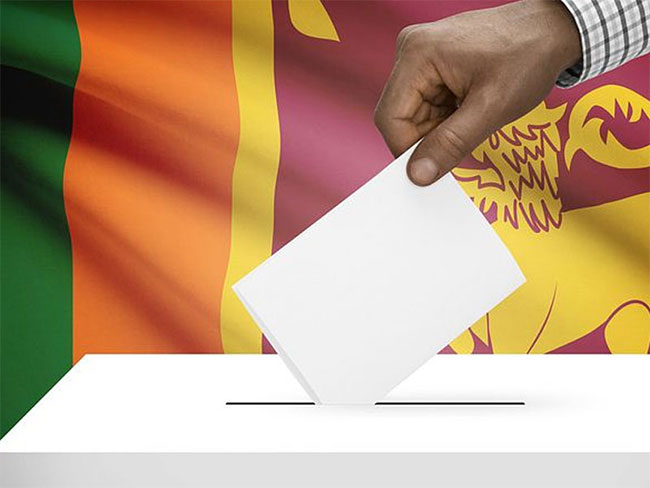
If the people of this country were asked whether they want elections to the local government, majority of them would say no! How many years have elapsed since the local councils became defunct? And did not the country function without these councils that were labelled as ‘white elephants’?
If the present government’s wish is to do the will of the people, they should reconsider having local government elections. This way the government will not only save a considerable amount of money on holding elections, but also save even a greater amount by not having to maintain these local councils, which have become a bane on the country’s economy.
One would hope that the country will be able to get rid of these local councils and revert back to the days of having competent Government Agents and a team of dedicated government officials been tasked with the responsibility of attending to the needs of the people in those areas.
M. Joseph A. Nihal Perera
Opinion
What not to do
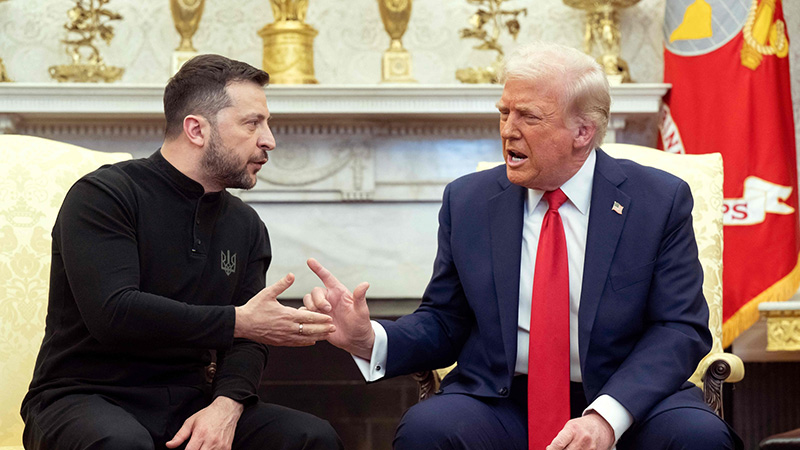
By Dr Upul Wijayawardhana
It is immaterial whether you like him or not but one thing is crystal clear; Donald Trump has shown, very clearly, who is the boss. Surely, presidents of two countries are equal; perhaps, that is the impression Volodymyr Zelensky had when he went to the White House to meet Trump but the hard reality, otherwise, would have dawned on him with his inglorious exit! True, the behaviour of President Trump and VP Vance were hardly praiseworthy but Zelensky did what exactly he should not do. Afterall, he was on a begging mission and beggars cannot be choosers! He behaved like professional beggars in Colombo who throw money back when you give a small amount!!
Despite the risk of belonging to the minority, perhaps of non-Americans, I must say that I quite like Trump and admire him as a straight-talking politician. He keeps to his words; however atrocious they sound! Unfortunately, most critics overlook the fact that what Trump is doing is exactly what he pledged during his election campaign and that the American voters elected him decisively. When he lost to Biden, all political commentators wrote him off, more so because of his refusal to admit defeat and non-condemnation of his supporters who rioted. When he announced his intention to contest, it only evoked pundits’ laughter as they concluded that the Republican Party would never nominate him. Undaunted, Trump got the party to rally round him and won a non-consecutive second term; a feat achieved only once before, by Grover Cleveland around the end of the nineteenth century. His victory, against all predictions, was more decisive as he got more collegiate votes and, even though it does not matter, won the popular vote too which he did not get when he got elected the first term. Even his bitterest critics should accept this fact.
Zelensky was elected the president of Ukraine after the elected pro-Soviet president was deposed by a ‘peoples revolution’ engineered by the EU with the support of USA. After this, the EU attempted to bring Ukraine to NATO, disregarding the Munich agreement which precipitated the Russian invasion. He should have realised that, if not for the air-defence system which Trump authorised for Ukraine during his first term, Russian invasion would have been complete. It may well be that he was not aware as when this happened Zelensky may still have been the comedian acting the part of the president! Very likely, Trump was referring to this when he accused Zelensky of being ungrateful.
Zelensky also should have remembered that he disregarded requests from Trump, after his defeat by Biden, to implicate Biden’s son in some shady deals in Ukraine and that one of the last acts of Biden was to pardon his son and grant immunity to cover the alleged period. Perhaps, actions of the European leaders who embrace him every time they see him, as a long-lost brother, and invitations to address their parliaments has induced an element of the superiority complex in Zelensky that he behaved so combative.
Trump wanted to be the mediator to stop the war and spoke to Putin first. Instead of waiting for Trump to speak to him, egged on by EU leaders Zelensky started criticising Trump for not involving him in the talks. His remark “He should be on our side” demonstrated clearly that Zelensky had not understood the role of a mediator. His lack of political experience was the major reason for the fiasco in the White House and the subsequent actions of Trump clearly showed Zelensky where he stands! PM Starmer and President Macron seem to have given some sensible advice and he seems to be eating humble pie. In the process Trump has ensured that the European nations pay for their defence than piggy-backing on the US, which I am sure would please the American voter. By the way, though Macron talks big about defence France spends less than 2% of GDP. Trump seems vindicated. Of course, Trump could be blamed for being undiplomatic but he can afford to be as he has the upper hand!

Ranil on Al Jazeera
Zelensky has shown what not to do: instead of being diplomatic being aggressive when you need favours! Meanwhile, Ranil has shown what not to do when it comes to TV interviews. God only knows who advised him, and why, for him to go ‘Head to Head’ with Mehdi Hasan on Al-Jazeera. Perhaps, he wanted to broadcast to the world that he was the saviour of Sri Lanka! The experienced politician he is, one would have expected Ranil to realise that he would be questioned about his role in making Sri Lanka bankrupt as well, in addition to raising other issues.
The interview itself was far from head to head; more likely heads to head! It turned out to be an inquisition by Tiger supporters and the only person who spoke sense being Niraj Deva, who demonstrated his maturity by being involved in British and EU politics. The worst was the compere who seems keen to listen his own voice, reminding me of a Sinhala interviewer on a YouTube channel whose interviews I have stopped watching!
Ranil claims, after the interview was broadcast, that it had been heavily edited reduced from a two-hour recording. Surely, despite whatever reason he agreed to, he should have laid ground rules. He could have insisted on unedited broadcast or his approval before broadcast, if it was edited. It was very naïve of Ranil to have walked in to a trap for no gain. Though his performance was not as bad as widely reported, he should have been more composed at the beginning as he turned out to be later. Overall, he gave another opportunity for the Tiger rump and its supporters to bash Sri Lanka, unfortunately.
Medhi Hasan should watch some of David Frost interviews, especially the one with Richard Nixon, and learn how to elicit crucial information in a gentle exploratory manner than shouting with repeated interruptions. He does not seem to think it is necessary to give time for the interviewee to respond to his questions. I will never watch Al-Jazeera’s “Head to Head” again!
Ranil’s best was his parting shot; when asked by Hasan whether he would contest the next presidential election, he said “No, I will retire and watch Al-Jazeera and hope to see you better mannered”!
-

 Foreign News1 day ago
Foreign News1 day agoSearch continues in Dominican Republic for missing student Sudiksha Konanki
-

 News5 days ago
News5 days agoAlfred Duraiappa’s relative killed in Canada shooting
-

 Opinion7 days ago
Opinion7 days agoInsulting SL armed forces
-
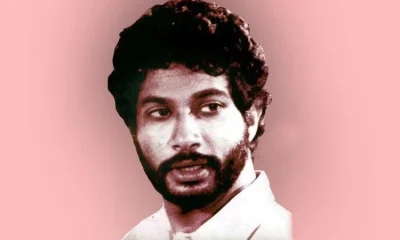
 Features4 days ago
Features4 days agoRichard de Zoysa at 67
-

 Editorial6 days ago
Editorial6 days agoGhosts refusing to fade away
-
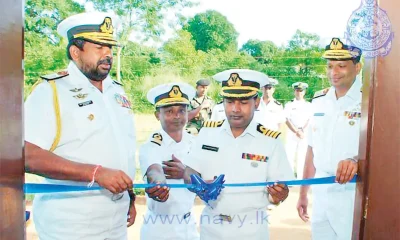
 Features4 days ago
Features4 days agoSL Navy helping save kidneys
-
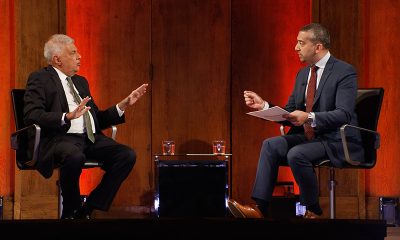
 Midweek Review5 days ago
Midweek Review5 days agoRanil in Head-to-Head controversy
-
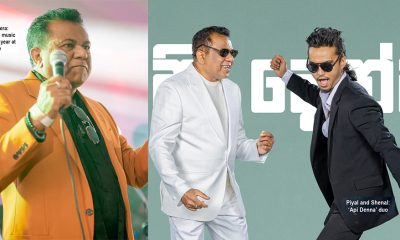
 Features6 days ago
Features6 days agoThe Gypsies…one year at a time











